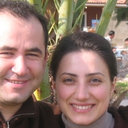Intracranial hemorrhage due to vitamin K deficiency in infants: a clinical study.
Mots clés
Abstrait
The hospital records of 30 infants with a diagnosis of intracranial hemorrhage (ICH) due to late onset of vitamin K deficiency, seen during a 5-year period (2001-2005) were retrospectively evaluated. Signs and symptoms of the patients were convulsions (80%), poor sucking (50%), irritability (40%), vomiting (47%), acute diarrhea (33%), and fever (40%). On physical examination there were bulging or full fontanel in 19 patients (63%), collapsed fontanel in one (3%), diminished or absent neonatal reflexes in 11 (37%), pallor in 14 (47%), and cyanosis in one (3%) patient. Gastrointestinal disorder, skin hemorrhagic findings, and epistaxis each were noted in two (7%) patients. All the infants had prolonged prothrombin time (PT) and seven had prolonged activated partial thromboplastin time (APTT), both of which were corrected by the administration of vitamin K. All the infants had ICH, with the most common being intraparenchymal hemorrhage, followed by multiple type ICH (27%). Neurosurgical intervention was performed in five patients (17%). The overall case fatality rate was 33%. In conclusion, we would like to stress that ICH due to vitamin K deficiency in infants is still an important health problem in Turkey resulting in high mortality rate.


